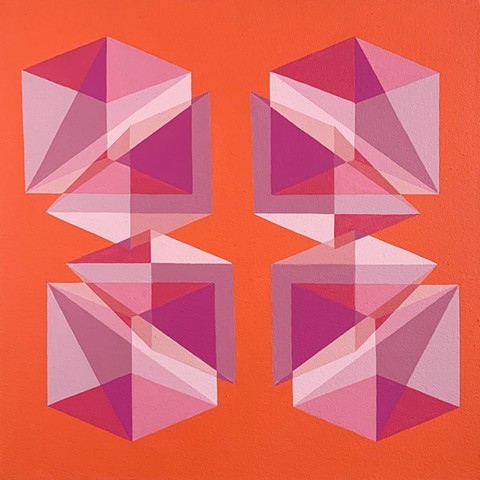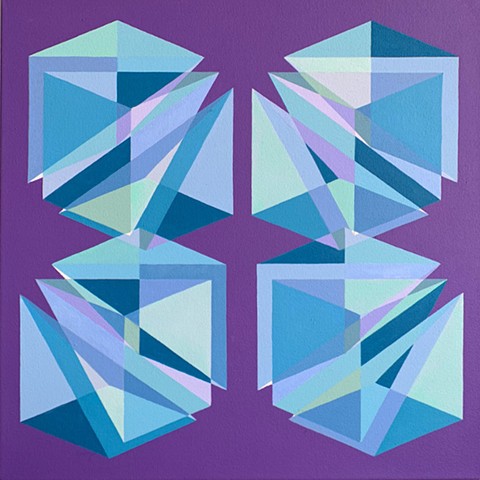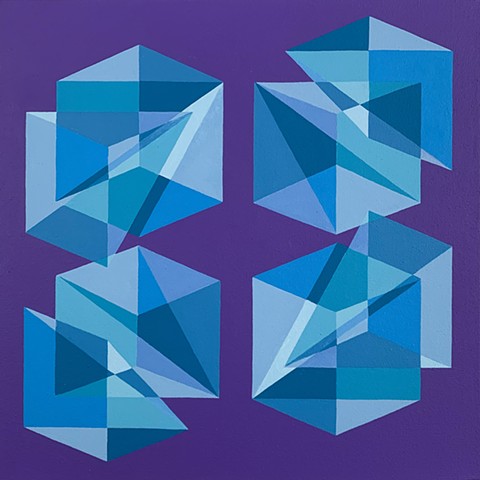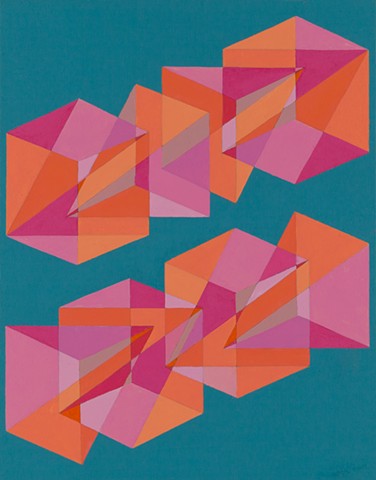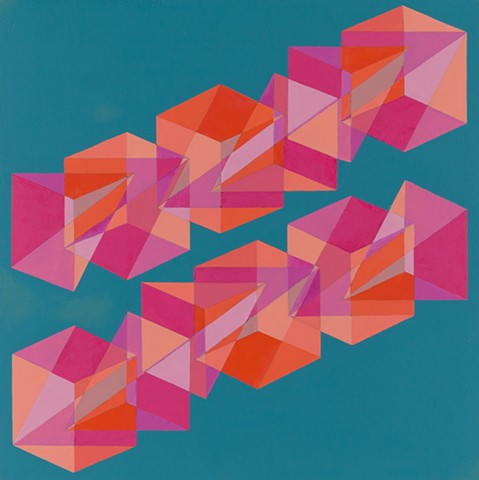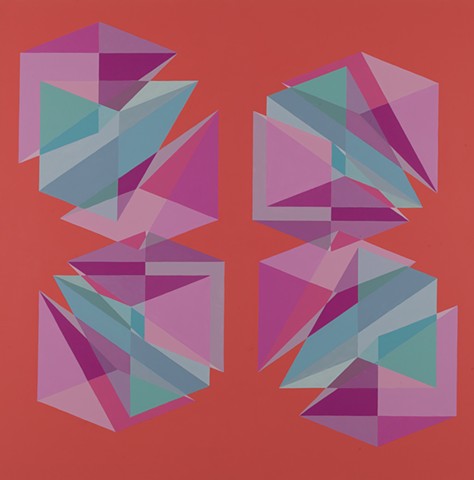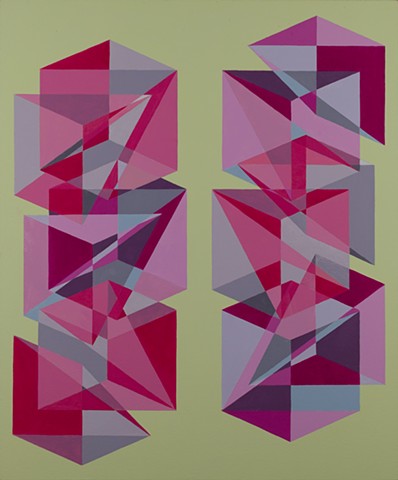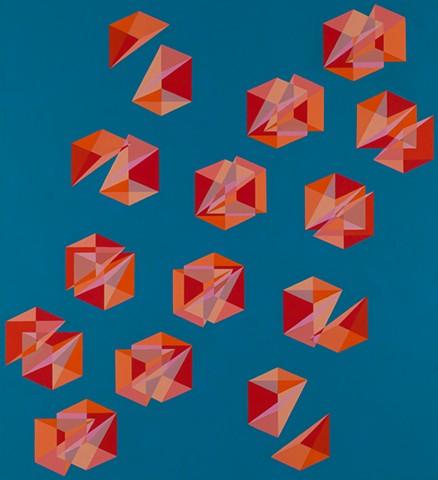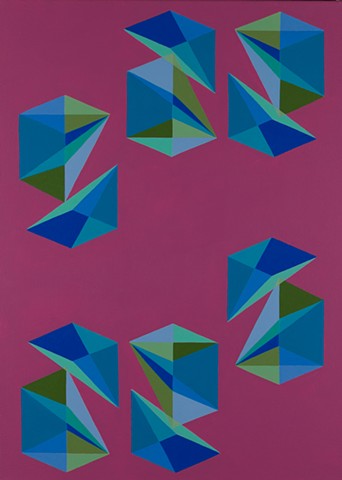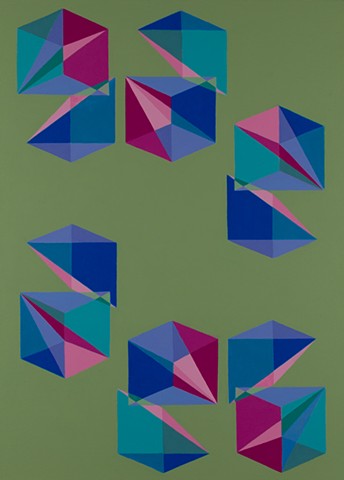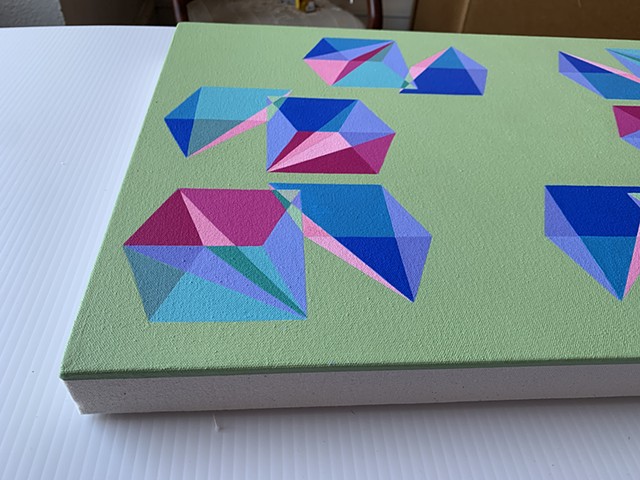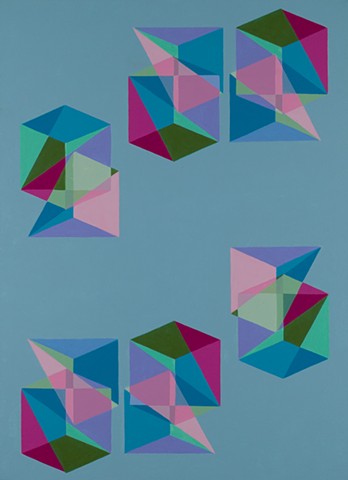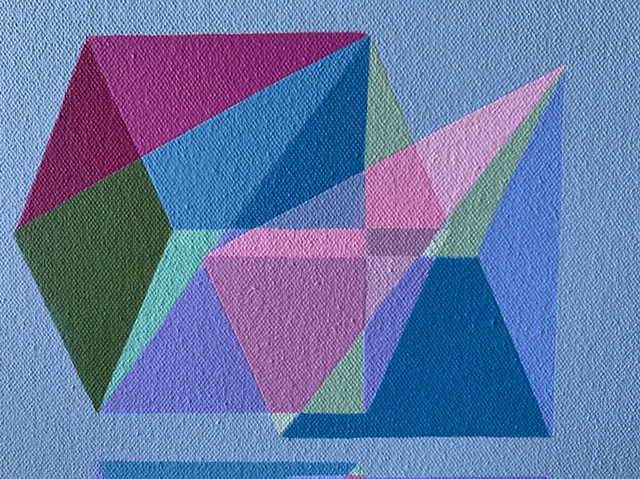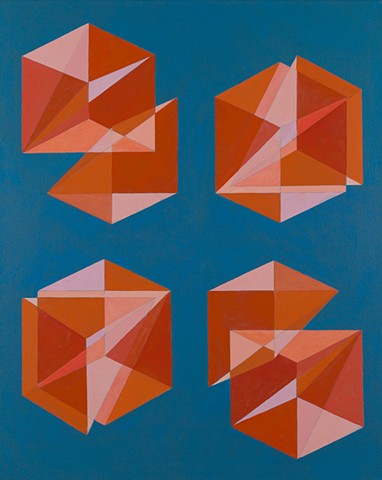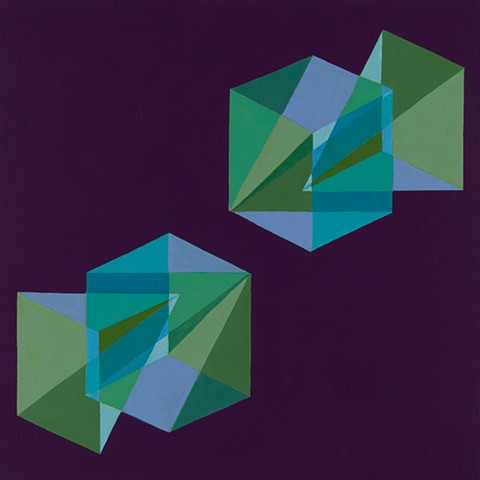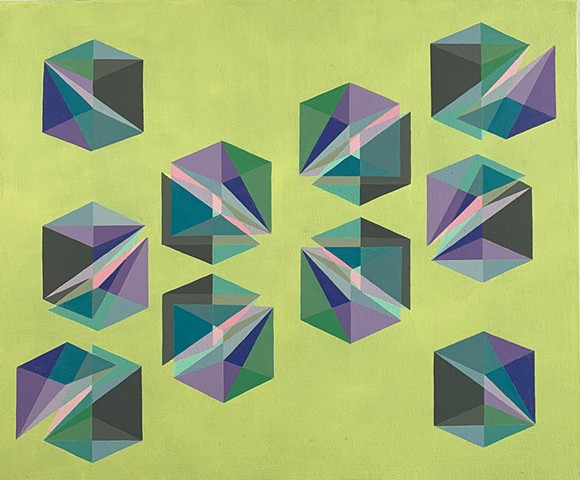Cubes Divided Equally into 3
This series came about while I was looking for some summer beach reading. I was browsing through math books at the library when I stumbled upon this concept. I am interested in the visual expression of geometry that has developed in my work over time and not usually drawn to the formulas. This concept was one that I was not aware of and was immediately compelled to explore.
There has always been a part of relational geometry that I have wanted to expand upon but never found the right components. I want to show the relational elements as equal, but changing based on their position, transparency, and color. However, most elements are split equally into even numbers. I have wanted to expand the relational elements within my painting beyond a binary choice. By splitting a geometric element into three there can never be a pair. The relationship always involves the group. Because they are equal in volume there is never one that dominates the relationship. Only when two of the volumes combine the relationship changes. There is a tension when the three are completely separate, because it is easier to envision a cube than it is to envision the three individual shapes. When there are two that are combined one can still see the suggested cube, it then becomes a question as to whether the third form is joining the cube or breaking away. Often these relationships are mirrored vertically and look like they are receding or advancing based on whether the viewer is looking above or below the suggested horizon line.
I started developing this series in the fall of 2019. It was my first series of work in my new studio in the Fairmount section of Philadelphia. There are 18 paintings in the series, each of them starting with an initial drawing then enlarged onto canvas. There are a few preliminary acrylic paintings on primed polypropylene. Each painting is painted to the line without masking. I draw the forms, paint the background, and then fill in the individual sections. After all of the forms are filled I make color adjustments using semi transparent layers until the proper color balance is achieved.
